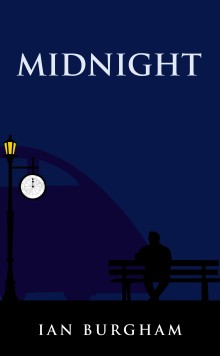Midnight
Midnight presents the thoughts of a restless traveller to such places as Istanbul, Edinburgh, Montreal, Toronto, the coast of Scotland, and towns and cities in Ireland, France, Italy, and Greece. In those settings, he meditates on the nature of our many kinds of love against the background, in his own life, of its betrayals, losses and disappearances; and he mounts an investigation into the nature of existence, against the backdrop of the certainty that we are fundamentally and finally alone. The book reveals a radical imagination working at the heart of things: in and through the darkness that precedes the light.
About The Author
Reviews of this Book
Read the latest review of Midnight by Peter Richardson in ARC Poetry Magazine from May 2016!
Check out Ian Burgham’s European adventures!
Check out this Interview with Rob Mclennan
“For those readers who like to dip their toes into other people’s misery, Midnight is your huckleberry.”
Review by Sharon Goodier
In a time when so much poetry is mentally and emotionally boring and paltry with language that is parched from drought, Ian Burgham’s Midnight is like diving into a pool of fresh, warm milk before the cream has been skimmed. In the dedication, Burgham says “We fall in love with the thing that is unique/ that makes us human and other/ But I am mindful of our pain.” Midnight lives in the borderland between pleasure and pain, truth and illusion. The poet understands living “as just the ongoing disappearance of things” and American citizens as “using up their years”. Reflecting on his marriage he concludes that ”faithfulness is only dream/and love is not enough”.
Yet the starkness of his poems sheds light. “The City of Love is where I placed my faith./ Then I had such hope for the small miracles/of a good life lived well through simple acts.” In Leadburn, Scotland and Capri, Italy, love eludes him and he’s “known a longing that will never quite leave.” Thus he says “We make poems from secrets disentangled from our lives.” These poems contain the secrets of a man who is not afraid to dance with the Red Queen on the other side of the looking glass, “accepting that happiness isn’t simple”.
In “Journey’s End”, the final poem, “leaving becomes arriving”. This is a 180 degree turn from previous poems where arriving was always leaving. In the end, he is able to say “Time is our end/and within that end there’s only joy and wonder and a poem/that great run of incendiary words.”









